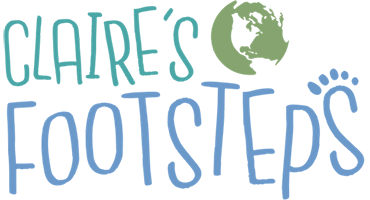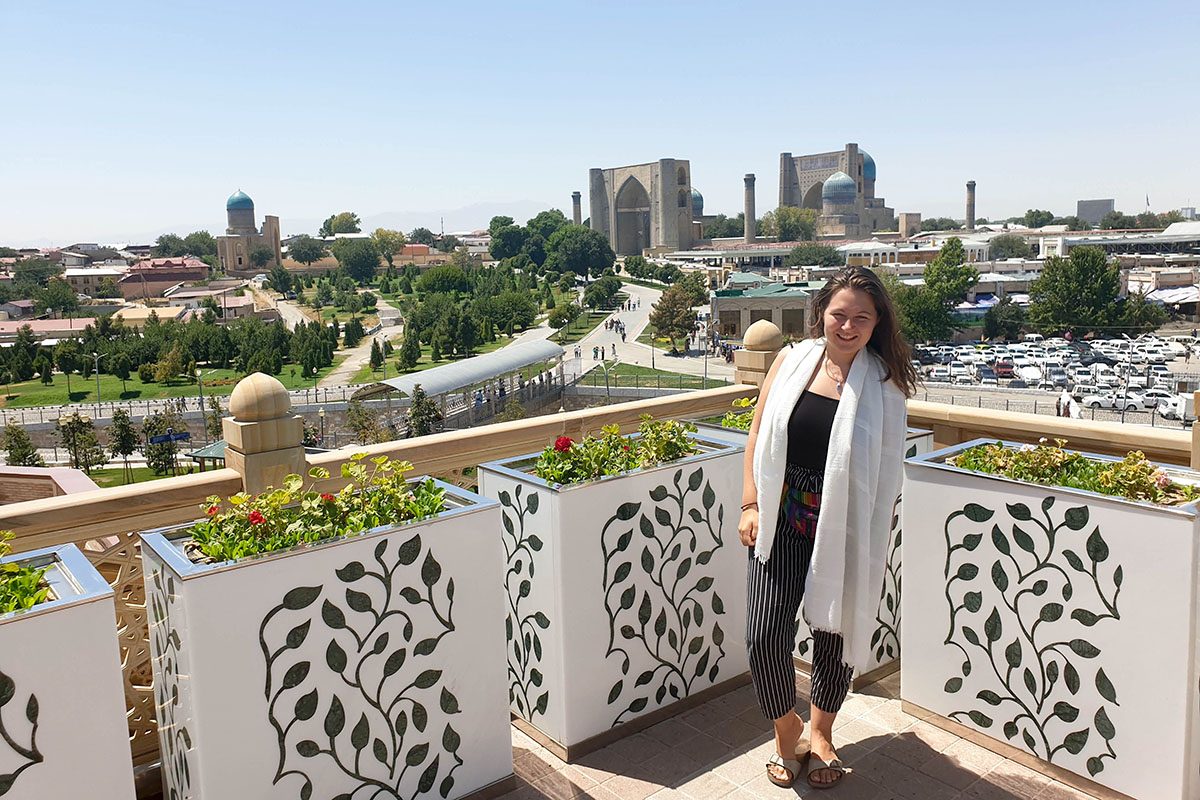“Do you have anything that is banned?” said an Uzbek security guard, poking his head around my train cabin’s door as I sat waiting, one of the only people on the train who was travelling all the way to Tashkent.
“Nothing banned” I said. He gave my case a cursory glance over, and nodded. “Thankyou”. He said.
Five minutes later, and he was back. “Do you mind if I practice my English with you?” he asked. “The train is so quiet today!”.
Not many foreigners cross the Kazakhstan – Uzbekistan border by train, the guard explained. But this could likely change; Uzbekistan, in the last few years, has opened up tremendously. It’s now easier to travel in than ever – even for solo female travelers.
Uzbek Borders
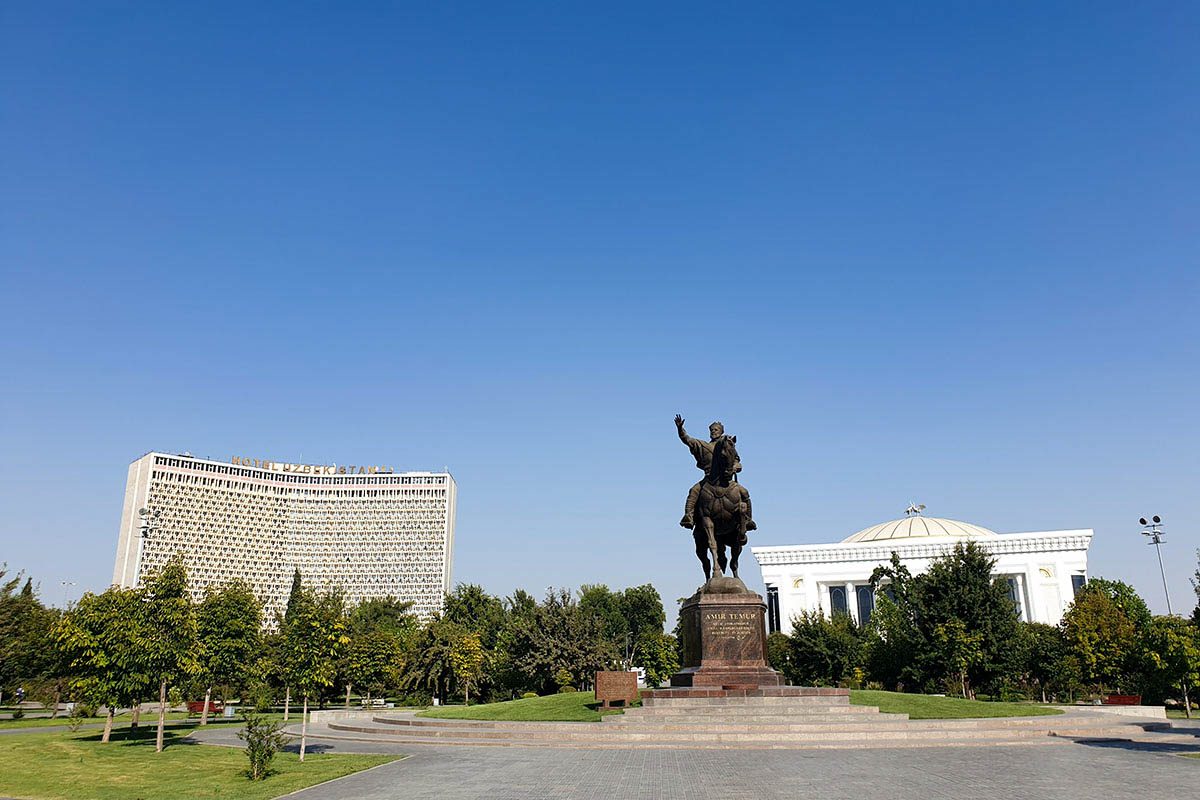
After the fall of the Soviet Union, all five Central Asian nations (Uzbekistan, Kazakhstan, Kyrgyzstan, Tajikistan and Turkmenistan) grappled with finding new identities and governments, and stayed relatively closed-off to the world for a few years.
Kazakhstan and Kyrgyzstan started opening up to tourists first; with Tajikistan offering an easy to get e-visa around the same time. Uzbekistan also started allowing tourists in, but with the need to secure a visa in advance, and extraordinarily strict border requirements.
It used to be the case that you would need to fill in a form detailing everything that you had, and then undergo a strenuous baggage search including allowing the train attendant to go through your phone and laptop. Drones, certain medications, and a long list of other items could be confiscated and people could even be arrested.
Nowadays? I didn’t need a visa as a UK citizen (some other nationalities, including US, do still need a visa but it is easy to obtain online), I got nothing more than my ‘any banned items?’ question, and a nice chat with the border guard about the rise of tourism in Uzbekistan. (I must note that having the items listed above are still illegal, and any traveler to Uzbekistan should be really careful with what they bring into the country, but the checking process is far less invasive and having the items generally comes with less strict consequences than in previous years).
I may have got lucky with a particularly relaxed search, but most reports do say that measures have been loosened dramatically in the last few years.
Welcome to Tashkent
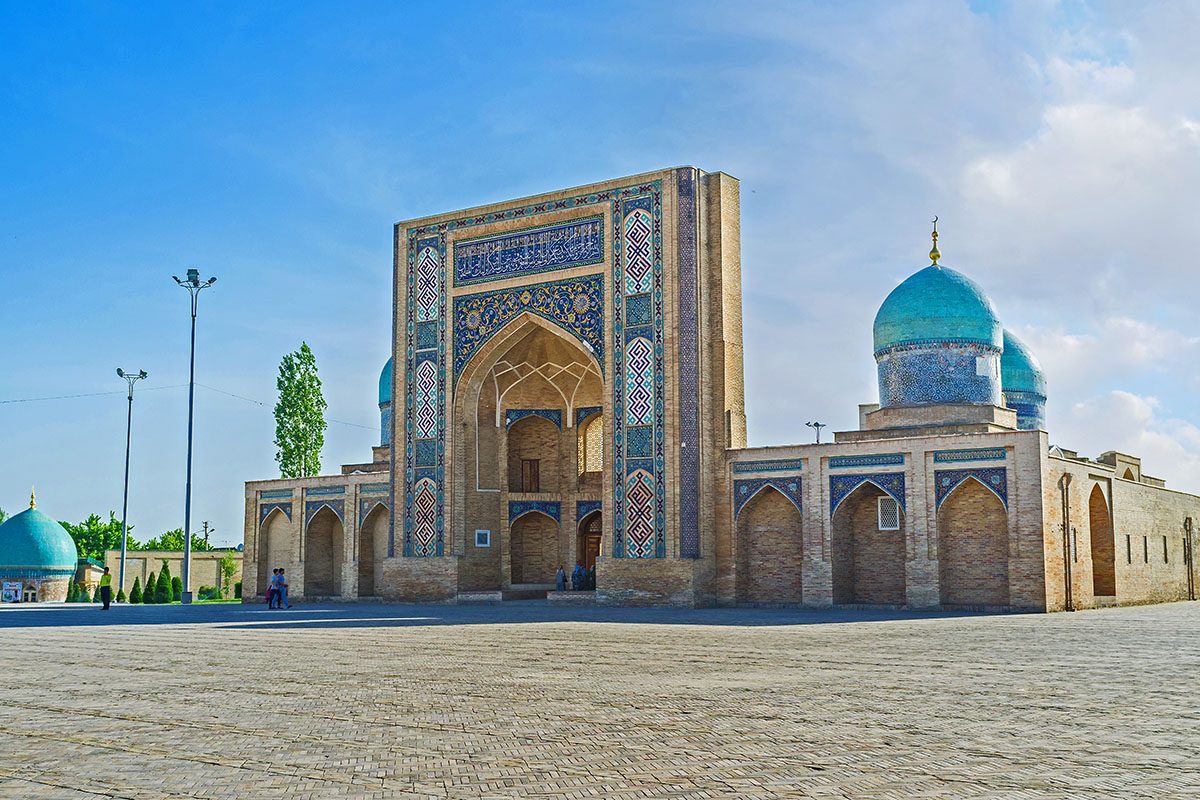
My first stop in Uzbekistan was Tashkent, its capital city. The largest city in Central Asia, Tashkent’s 2.5 million inhabitants live in this sprawling metropolis that fuses Soviet and Islamic influences. It’s home to what many (including me) consider to be the most beautiful subway network in the world, various markets including Chorsu Bazaar, an ancient madrassa (Islamic school), and various Soviet buildings, including the imposing Hotel Tashkent that looks over the main square and a statue of the conqueror Amir Temur.
Before exploring all of that, however, naturally, I got lost. I always recommend Maps.Me, but it did drastically let me down here – taking me to completely the other side of the city. It was 40 degrees celsius, I’d just spent 2 hours purchasing train tickets to go to Samarkand, and my phone was barely alive with just 1% battery.
There was nothing for it, but to start speaking my incredibly poor Russian.
Zdrastvitue (hello), I said to a man running a stall on the side of the road. Zdes yest hostel? (is there a hostel here?). He looked at me, bemused, his mouth flickering in a brief smile. Then he called two other men over, started conversing rapidly in Uzbek (Uzbek is the national language, but nearly everyone speaks Russian fluently) with them, and they all fell about laughing.
Eventually, one of his mates beckoned for me to follow him. I knew I needed to be fairly cautious – I’d literally just arrived in this country, after all, and it was somewhere that few solo female travelers visit – but as it was broad daylight on a main road, I felt safe. He took me to a local English school and chatted with the receptionist, who called out another woman – an English teacher.
The man had just been kindly finding me someone who could speak English and help me. She let me use her phone to call the hostel where I found out that I was in completely the wrong place, and helped me into a taxi that the hostel owner had ordered for me. The hostel owner wouldn’t even let me pay for it at the other end.
Is Uzbekistan Safe for Solo Female Travellers?
Exploring Tashkent
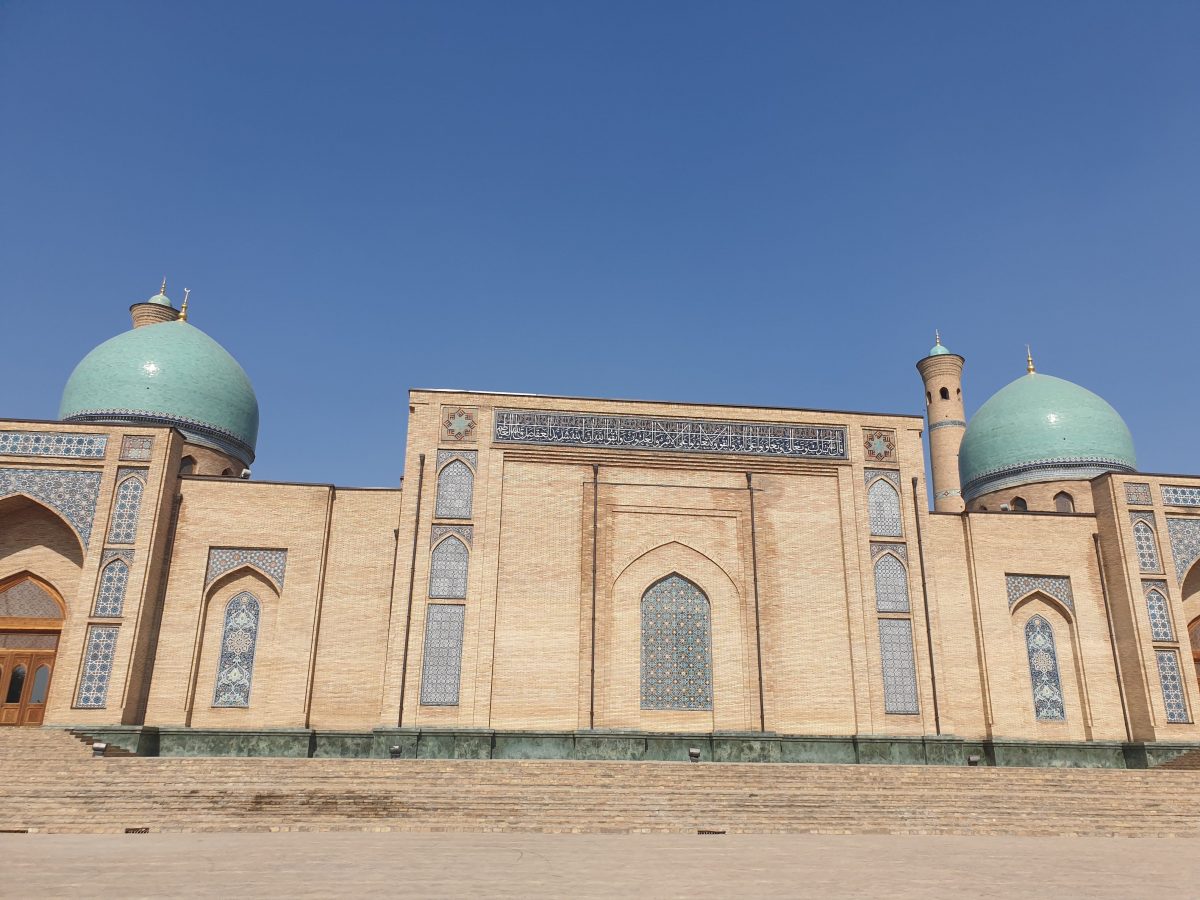
Most of my experience exploring Tashkent was trouble-free. I visited the popular sights both on my own and with a female friend I’d made at the hostel; and we generally found it safe, the locals to be helpful, and there was much more English spoken than I expected.
We also met up with a girl from Couchsurfing who explained “we’re only just starting to open up as a country. But people have been wanting this for so long. So we do make the extra effort to learn languages, we want to make the most of this opportunity that we have now”. She could speak Uzbek, Russian, and English fluently, and was learning Korean and German.
There was just one incident when I didn’t feel completely safe or welcome in Tashkent. I was with my friend in the upstairs part of the Chorsu Bazaar, and we quickly realised that we were the only women on this level. The cries of “deboychka” (girl) weren’t too condescending at first – the term is used to get people’s attention – although they did seem a bit aggressive. But as we continued to walk around, the men’s tone of voice did give me the impression that if my Russian was better than the few phrases I knew, I would have felt catcalled.
I have to say, however, that this was the only experience that I had of being catcalled throughout six weeks in Uzbekistan and Kazakhstan. Catcalling is much, much more common in the UK (my home country) – in fact, along with China, Central Asia may have been the place I have travelled to where I have been harassed the least. It was either a mob mentality thing, or the upstairs level of Chorsu bazaar was just where all the condescending men of Central Asia hang out.
The Silk Road Cities
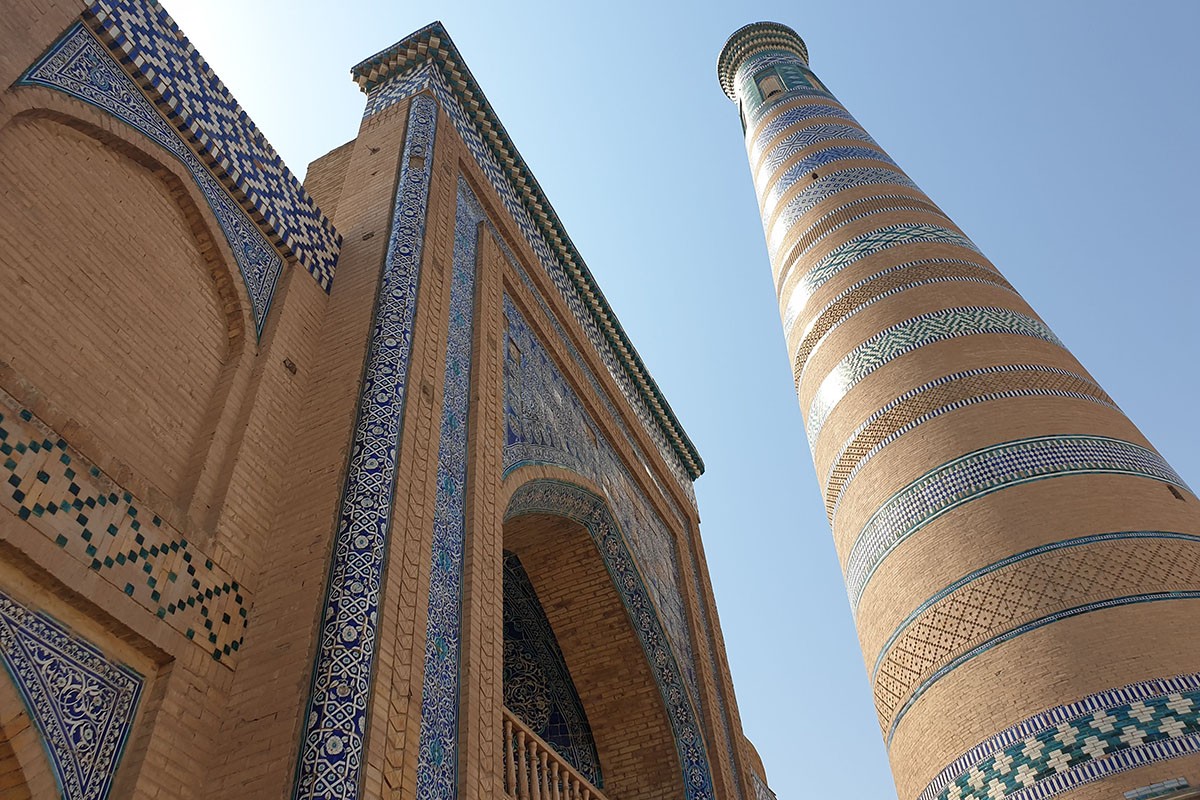
After Uzbekistan, I made my way along the Silk Road, ticking off Samarkand, Bukhara, and Khiva. I spent most of the time touring the cities and their beautiful attractions completely alone, chatting to locals where I could but also enjoying some solo travel time.
The Silk Road, more accurately known as the Silk Routes because it isn’t one specific road, stretches from China in the East to Europe in the west, and was used as an ancient trading route, transporting silk and other products. It decreased dramatically in popularity once new maritime routes were introduced, but its legacy remains, and arguably the best places to experience the old grandeur of the routes are Uzbekistan’s Silk Road cities.
Caravans of camels and humans would stop in these cities to rest and feed. Just like with modern tourism, people spending time in these cities injected money into them; giving them the funds to build elaborate madrassas (Islamic schools) and mosques, in keeping with the traditional Islamic style of the era.
While these ornate, religious palaces are anything but Soviet, the rulers from Moscow quite liked them as a display of the grandeur present within their union – so they put money into refurbishing them, resulting in the well-preserved majestic buildings that tourists see today.
Samarkand is a city with various historic monuments centred around the Registan, with some attractions like the Ulug Beck Observatory located further out. Bukhara has a compact historic centre that can easily be walked around and a few other points of interest, and Khiva is smaller again, with a tiny Old City and a few suburbs.
Other than the temperatures – which reached to 48 degrees celsius on the hottest day – I didn’t find much to be intimidating in these historic towns of Uzbekistan. People are used to tourists here, so there are English menus in many cafes and it’s easy to get around with English (although I kept trying, and failing, with my Russian), but they aren’t so used to solo tourists. Especially not solo female tourists.
Are you married?
I had quite a lot of chats with locals in these Silk Road CIties. It was great to be able to talk to people about our countries and culture – but conversation would sometimes lead to the typical ‘are you married?’ question.
It is unusual in Uzbek culture to travel as a solo woman. It’s not unheard of, and there are certainly Uzbek women who travel alone, but out of the big cities it can be thought of as a bit unconventional. A lot of the time, these questions were made out of curiosity – marriage is normal for a woman of 26 years there, so it makes sense to ask that question.
However, sometimes these questions can have an ulterior motive, and as a woman who has spent a lot of time traveling solo, I know the importance of always being careful with questions like this. I am not married, I am in a relationship now but I wasn’t then, but occasionally I would completely make up a husband, because I felt like it was the safest thing to do. I’m not saying the person who asked me if I was married had bad intentions; it’s more than likely that they were just curious and saw it as a normal question. But as a solo female, you’ve always got to cover your back. I’ve done the same before in Indonesia, Mexico, and other countries around the world.
My friend in Tashkent had different opinions. “I think it’s important to be honest about how marriage is considered in our countries,” she said. “Uzbekistan is opening up, and surely they want to know about the situations in other countries”.
I do agree, but for my own safety, sometimes lying did just make life easier.
A Shared Taxi Drive
After my time in the Silk Road cities, I was bound for West Kazakhstan – a journey that would take me three days. First I had to get to Nukus, the last city of any decent size in the country, and the most sensible way to get there was by shared taxi.
I was the first person in the taxi, and I dropped my stuff off in the boot and took a seat in the front – keen to be sitting next to an open window in this surreal heat. An hour later, still waiting at the taxi station, and I was still the only one in the vehicle. Two hours later, and we agreed a reduced rate for a private taxi drive. I just needed to get to Nukus.
This was the most dangerous part of my time in Uzbekistan – but not because I was a woman, but because at one point, my driver started going a casual 100 mph through the desert. Once I’d translated ‘please slow down’ into Uzbek (Google offline translator is a lifesaver, by the way), he drove a less nerve-wracking 70 mph. For the rest of the time, we happily listened to a Russian pop song on repeat that became my 2019 summer anthem, and made attempts at communicating through a massive language barrier. He dropped me off in Nukus safely, at the agreed rate.
A Bank Problem
Another problem that I faced in Uzbekistan also wasn’t due to me being a woman; it was due to me not knowing enough about the banking system. Owners of foreign cards can only get money out in USD, which can then be exchanged in a bank to Uzbek Som. But once you’ve got Som, you’ve got to spend it. Nobody will exchange Som back into USD, or into any other currency for that matter. After traipsing around four different banks in Nukus, I had to come to the conclusion that I would not be getting any USD for my Som.
My solution? I saved it for my train ride the next day, and waited until a man with a big bag of money came round. He changed my Som to Kazakh Tenge right there and then, in the open. Counterfeit money exchange doesn’t seem to be a problem in Uzbekistan.
Train Journeys in Uzbekistan
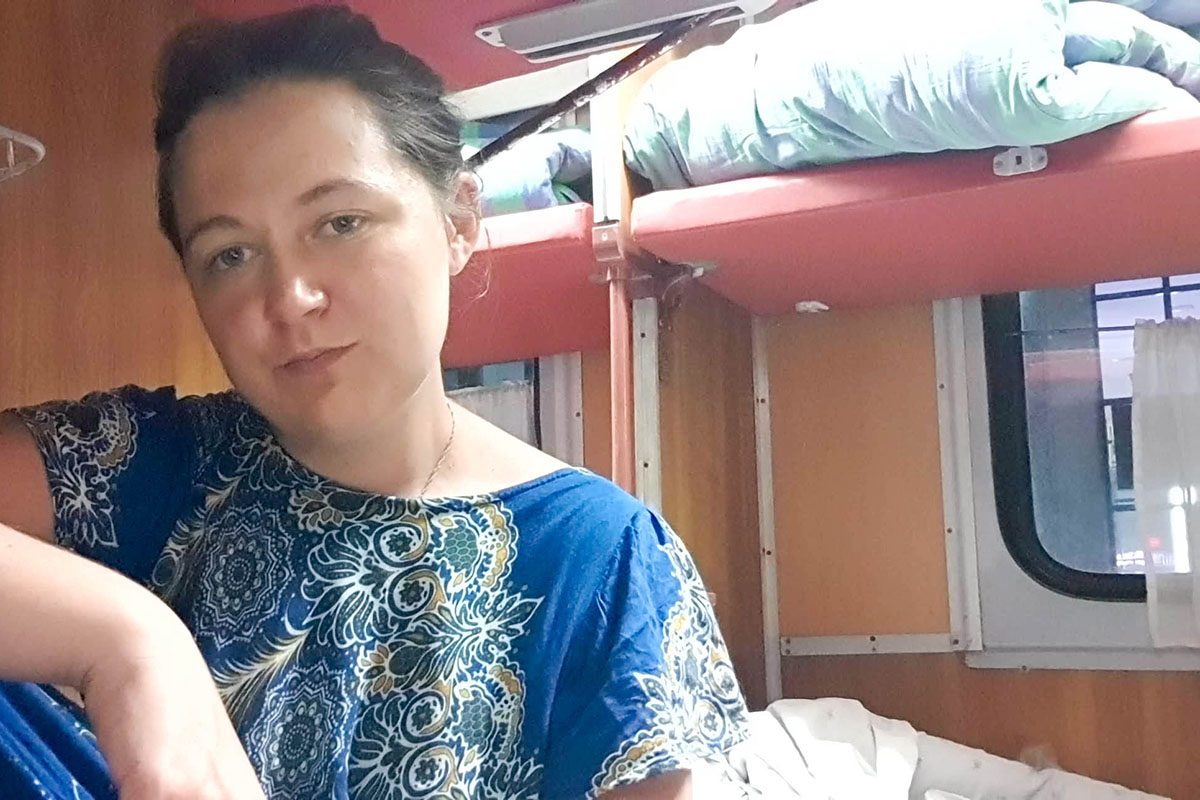
Apart from my hair-raising not-shared taxi experience, I traveled Uzbekistan by train. The high speed trains are quick, modern, and clean. You even get a little snack on some of them!
However, the true adventure lies in the Platzkart (3rd class) of the Soviet sleeper trains. These are like large open cabins, like dorm rooms on trains, and they accommodate up to 60 people. All sorts of people use these cabins – men, women, young, old, and the occasional traveler like me.
Quite a few people were confused to see me, and the normal questions – including are you married? followed. But they were also extremely kind, sharing food with me, helping me out with the border processes, and making sure I was aware of where I needed to get off. I never once felt unsafe on these trains – even with all of my valuables around me (with normal precautions taken, of course!). There are so many people around that even someone who wanted to do harm would struggle – but I did also believe that everyone around me meant well.
What to wear in Uzbekistan
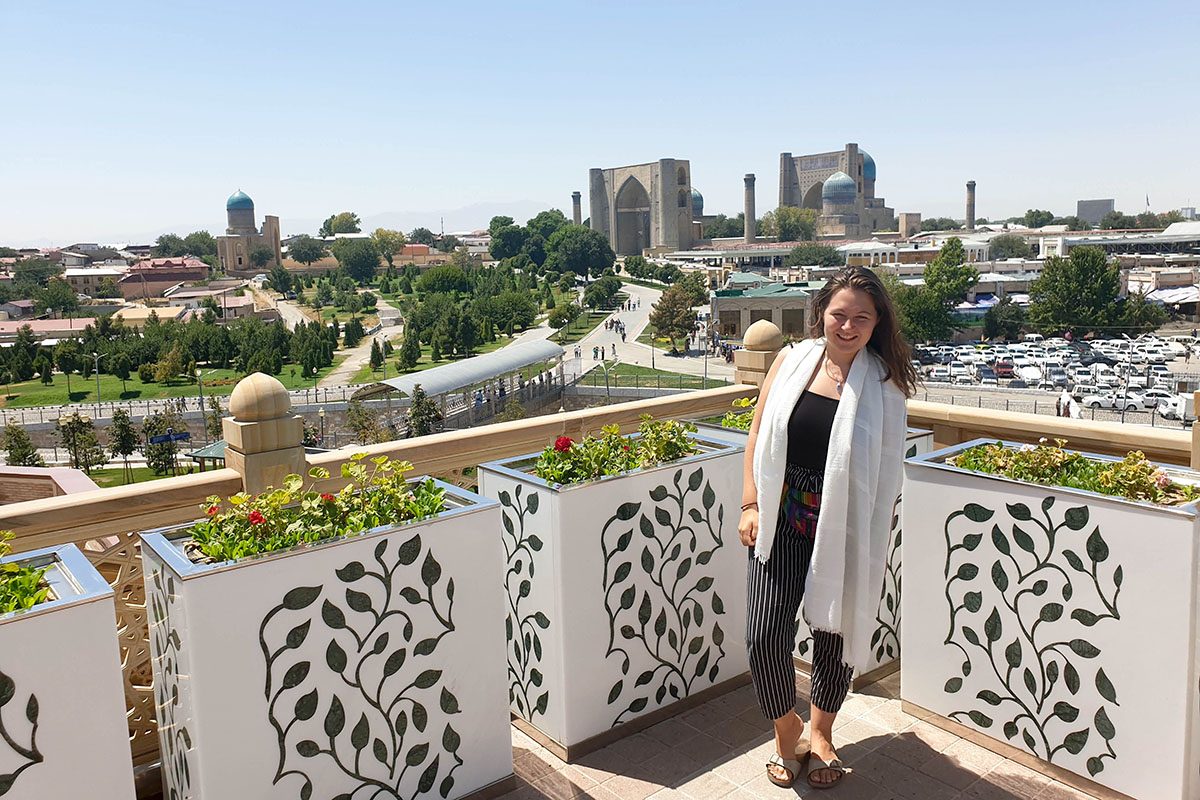
Uzbekistan is a Muslim country – from what I’ve read and experienced, the most traditional one in Central Asia. However, it’s rare to see an Uzbek woman wearing a hijab, and longer shorts are generally ok to wear.
Nonetheless, being a stranger in the country, I covered up as much as possible – wearing long, light pants and long-sleeved tops. I was traveling light and actually only had two long-sleeved tops with me, but when they were in the wash I would wrap a scarf around my shoulders and arms. As I may have mentioned, it got to 48 degrees – an uncomfortable heat for long clothes sometimes, but something that I felt was essential to be respectful.
I took an extra scarf in case I needed to cover up my hair when entering religious sites, but this was never requested, and when I asked the guards they looked at me in surprise and said I didn’t need to.
Where to stay in Uzbekistan
Due to Uzbekistan’s popularity as a group tour destination, there are actually a range of places to stay. There are boutique hotels in every Silk Road city, but to get an authentic Uzbek experience – complete with a full banquet every morning for breakfast – I’d recommend staying in a guesthouse. These locally-owned places are fantastic for backpackers and solo travelers. The owners are often a valuable source of information about the city, and they’re also a great place to meet people.
In Tashkent and Samarkand, there are hostels available – Central Perk Hostel was great in Tashkent, and Amir Hostel in Samarkand was decent. I met people and made friends at both of these places.
Solo Female Travel in Uzbekistan: Have I Convinced You?
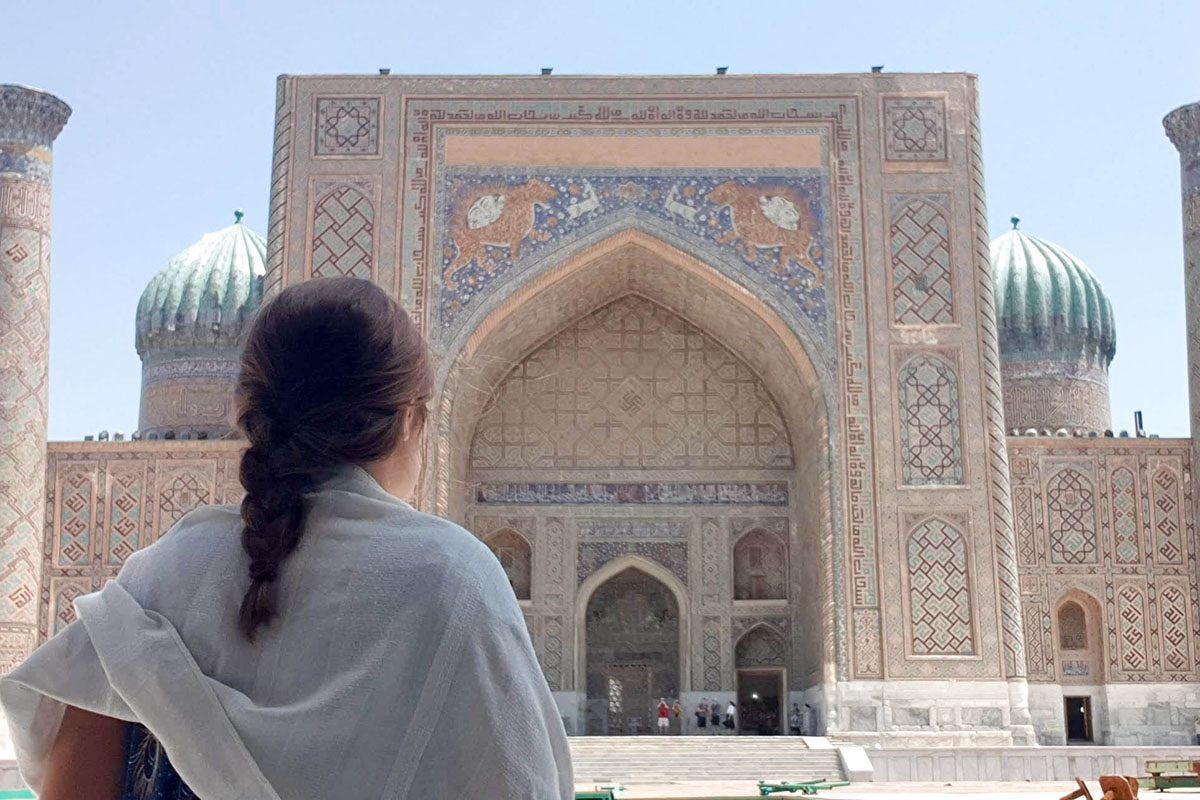
Uzbekistan is a country that has suddenly made it onto lots of people’s travel radars. It’s somewhere that has experienced a lot of oppression and difficulty throughout the decades, which has understandably affected people there. But it’s also somewhere that is now ready for tourists; and the overwhelming majority of Uzbeks were incredibly welcoming to me, albeit a little curious as to why I was there on my own.
That being said, Uzbekistan is modernising fast, and I saw a range of views during my time there. Some people, especially younger Uzbeks that I met in the cities, saw traveling solo as completely normal, while others balked at the thought of it. But the overwhelming message I got from the people of Uzbekistan was that they were happy to see me there, and excited about showing me the wonders of their country. And trust me, there’s a lot to see!
